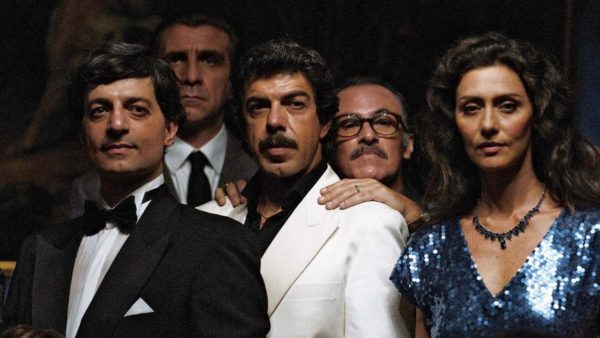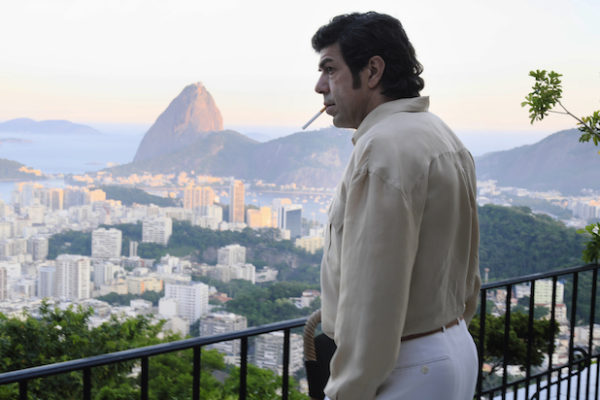Marco Belloccio’s fast-paced crime drama, The Traitor, hums with raw energy.
Focusing on Tommaso Buscetta (Pierfrancesco Favino), a top-ranking Cosa Nostra mobster who turned on his colleagues in a series of sensational trials in Italy in the 1980s and 1990s, it is reminiscent of some of the finest movies of its genre. Richly steeped in Italianate atmosphere, it opens in Canadian theatres on February 7.

The opening scene, rife with pageantry, sets its tone. In a villa in Palermo, rival members of the crime syndicate gather to divide the lucrative spoils of the heroin trade. This is supposed to be an opportunity for advancing their financial interests on an equitable basis, but old grudges and suspicions linger and mutual trust is in short supply. Belloccio sets up this scene beautifully, his cameras panning on a phalanx of muscular men dressed as Arab sheiks, the light of flickering torches illuminating the grounds.
To Buscetta, a seasoned veteran of turf warfare, the future looks uncertain. Treading carefully, he goes into exile in Brazil with his third wife, leaving his two grown sons behind in the care of a trusted but devious associate.
Having reestablished himself in a seaside mansion in Rio de Janeiro, he is jolted by the eruption of mob warfare. Assassinations take down mobsters in Brazil and Italy, leaving a trail of fear and loathing. At a solemn funeral service in a church in Italy, a veiled woman mourning her husband’s murder maliciously bites the ear of a well-wisher from the other side, sending her a message that hypocritical condolences are not appreciated.
When news reaches Buscetta that harm has come to his sons, he seriously considers returning to Sicily, but changes his mind because the risks are just too great.
Having paid off corrupt Brazilian government so that he can safely remain in Rio, he’s shocked by his sudden arrest on charges of drug dealing. He tries to delay his extradition to Italy, but finds himself on a plane bound for Rome. The prosecutor, a judge named Giovanni Falcone (Fausto Russo Alesi), assures Buscetta that his family is safe in the United States in a witness protection program.

Under intense questioning, he falsely identifies himself as an “agricultural businessman” who knows nothing about the Cosa Nostra. Adhering to its strict code of silence, or omertà, he insists he’s not an informer. But on the advice of his wife, Buscetta proceeds to answer Falcone’s probing questions. Although he claims to be a simple “soldier” in the ranks of the Cosa Nostra, he eventually spills its secrets and comes to admire Falcone.
Buscetta is the star witness at a 1986 show trial that quickly turns into a circus. His incensed former colleagues, locked in a large cage, loudly denounce him as a liar and traitor. During a comical interlude, one of Buscetta’s best friends flummoxes the judges by delivering his testimony in a strong Sicilian accent barely anyone in the courtroom can understand.
In due course, Buscetta joins his family in the United States, but he feels unsafe, realizing that the long arm of the Cosa Nostra is quietly waiting to settle accounts.
Expertly directed by Belloccio, The Traitor is a top-notch film, a platform for Favino, who turns in a riveting performance as a hardened gangster trying to shake off his unsavory past.